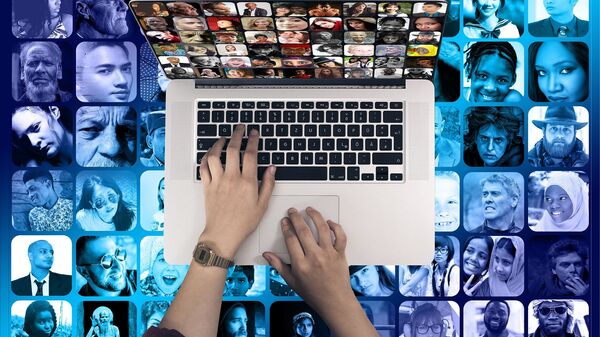Christopher Wylie accused his former employees of harvesting the personal data of more than 50 million Facebook users in the USA- data which was then passed on to Trumps campaign manager Steve Bannon to profile potential swing voters. Facebook is under harsh fire for the affair, which has been widely viewed as election meddling.
Sputnik: The interesting thing is that unlike the anticipated ‘1984’ scenario, we are voluntarily signing off our data (more ‘Brave New World’) — but how much is this really voluntary, and how much are we being coerced into giving our data through deceptive mechanisms?
mc schraefel: Big industry always tries to optimize for its own benefit. If these breaches are happening, generally speaking, it's because there is a capacity to enable them to happen. If there is an opportunity to be seized and to exploit something it's not a surprise that it is being exploited, and that there is not always going to be the nicest people working in an election, or in an organization.
I'm aware of efforts within pockets of Facebook that are doing really incredible work on trying to design better privacy, better terms and conditions, to give users a better experience. They know that if they don't, people will rise up as they have before, and it hurts their business. This is not going to be a painless event right now.
These companies appear to us as monolithic, and I guess that that's the most important thing, that we don't see as much of the other things that are going on- small groups within companies that are trying to make a difference- I guess they need more help to make a difference and be noticed. At some point it might be great to push on, saying that there are these groups inside of these companies, what's holding them back from having more of an effect?
Sputnik: How much could this kind of breach influence the election?
mc schraefel: If we look at historical precedents, to say what has happened in the past — What is similar to this in the past? Again, the only time that something changes a position, is when there is the belief that this is personally relevant. So here, it's very difficult to see theft of one’s personal data having any direct effect on the victim. It's very difficult to assess the cost, in the way that for instance, if an airbag fails in a car, you can see the cost of that immediately if the airbag doesn't perform. It's really difficult to pinpoint exactly where our personal data gets used and to be able to say 'my data was exploited' unless you are involved in an identity theft, and then again, that has so far been on a relatively personal scale as opposed to a whole city. It's not too hard to imagine how if you want to affect something, you have to go to some kind of belief system.
Again, if we look at the use of data to influence an election, how is a nation state going to influence an election? Well it's going to be able to get peoples personal data from a social network. Maybe this happened, maybe it didn't. The question might be though, is that actually happening or is this leveraging a little bit of what's happening in order to create a political story that has political benefit in other ways? Is so much energy going to be focused on who is the supposed bad actor here, that how that activity actually took place becomes incidental. The media focus doesn't seem to be around the data, as much as it is around assuming that this is some kind of evidence of interference or collusion.
Sputnik: The whistleblower at the heart of the scandal has had his accounts blocked from fb, whatsapp and twitter- suggesting that we are not free to question the motives of these companies- is this unduly censorship?
mc schraefel: Maybe not today, but tomorrow or next week, it's going to become increasingly important to be able to connect with your communities on these various social media sites. If a channel of communication is so important for society, does anybody have the right to exclude you from it? If one says, well, this is a business and of course I have the right to exclude you from it, it's my business, then that again becomes a question of 'who runs this'? If it is a utility, like water, you cannot turn it off unless they don’t pay their bill. Even then, there are conditions in which it is socially unacceptable to turn off somebodies water or electricity if it puts them in harm’s way. Is social media becoming the same thing? That effectively by blocking somebody from being on these platforms, you are denying them of something that is going to become a social right.
The views expressed in this article are solely those of the speaker and do not necessarily reflect the official position of Sputnik.

